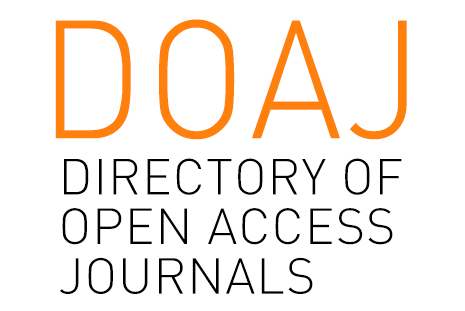Location
The Directory of Open Access Journals was launched in 2003 at Lund University, Sweden, with 300 open access journals and today contains ca. 10000 open access journals covering all areas of science, technology, medicine, social science and humanities.
DOAJ is a membership organisation and membership is available in 3 main categories: Publisher, Ordinary Member and Sponsor. A DOAJ Membership is a clear statement of intent and proves a commitment to quality, peer-reviewed open access. DOAJ is co-author to the Principles of Transparency and Best Practice in Scholarly Publishing (Principles) and DOAJ members are expected to follow these principles as a condition of membership. DOAJ reserves the right to reject applications for membership, or revoke membership if a member or sponsor is found to contravene the Principles. Read more about membership here.
DOAJ is a community-curated list of open access journals and aims to be the starting point for all information searches for quality, peer reviewed open access material. To assist libraries and indexers keep their lists up-to-date, we make public a list of journals that have been accepted into or removed from DOAJ but we will not discuss specific details of an application with anyone apart from the applicant. Neither will we discuss individual publishers or applications with members of the public unless we believe that, by doing so, we will be making a positive contribution to the open access community.
DOAJ publishes Information for Publishers on this site to help Publishers adhere to the Principles and to assist them in completing an application. DOAJ also publishes a list of FAQs relevant to all members of the publishing community, particularly libraries and authors. All information on this site is available to both members and non-members.
Aims & Scope
The aim of the DOAJ is to increase the visibility and ease of use of open access scientific and scholarly journals, thereby promoting their increased usage and impact. The DOAJ aims to be comprehensive and cover all open access scientific and scholarly journals that use a quality control system to guarantee the content. In short, the DOAJ aims to be the one-stop shop for users of open access journals.
Members:
Resources
Displaying 521 - 525 of 783The cadastre of values and income: some considerations
The article intends to verify the logical and methodological framework of a cadastre of values, based on the market prices, in addition to cadastre of incomes, as provided by the reform guidelines which
have been discussed by some time in the Italian Parliament, also in view of the criticism made and the issues inherent in the theoretical and empirical determination of the asset values for the intended purpose.
The cadastre of values and income: some considerations
The article intends to verify the logical and methodological framework of a cadastre of values, based on the market prices, in addition to cadastre of incomes, as provided by the reform guidelines which
have been discussed by some time in the Italian Parliament, also in view of the criticism made and the issues inherent in the theoretical and empirical determination of the asset values for the intended purpose.
Multi-agent modeling for water policy impact assessment: a road map
Water policies have a great impact upon different types of resources (water, land and soil resources; infrastructure and facilities; financial resources; environmental knowledge and information; etc.). They involve many individual or collective actors (users, managers, public or private companies, associations, etc.) as well as rules and norms of behavior that these actors are the recipients or agents. Complex systems, if any, these policies have several kinds of effects, expected and unexpected, direct and indirect effects, societal, economic, environmental and eco-systemic.
A study on the efficiency of EFQM versus Bass method: Evidence from national land and housing organization
Leadership style plays essential role on the success of organizations. The proposed study of this paper compares the efficiency of leadership study based on EFQM and Bass models in national land and housing organization of Iran. The proposed study of this paper designs a questionnaire and distributes it among all managers on this organization. The study covers all different levels of management including middle and top-level management. The results of the survey indicate that the average efficiency of EFQM model is located in 2.7276
La producción del espacio residencial en los procesos de transformación de los polígonos industriales de Madrid. Estudio de caso Polígono Julián Camarillo y Embajadores.
Resumen


